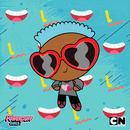Before I start this I want to say that this is not an attack nor is in reference to all black men. This is just a discussion I am having with myself and the Her Campus audience on something I have noticed growing up as part of the black community and watching black men be represented on television and in the media.
Let’s discuss what it means to be hypermasculine. Hypermasculinity is a psychological term defined by Wikipedia as “the exaggeration of male stereotypical behaviour, such as an emphasis on physical strength, aggression, and sexuality.”
How does this relate to the black male community?
It pervades hip-hop. If you google “gay hip-hop” one of the results is “Gay Hip-Hop Artists Exposed” a video on YouTube with over 300,000 views. The use of the word exposed as if this user is making this information known to the public like it was a secret and like it will be the undoing of these black men’s careers. It must be clear that everyone on this list is a black man.
It is also seen on television. For instance, Riverdale features an episode in which a black male has a “playbook” a book full of his sexual conquests and the ones of his friends rating girls they have been with. If does get in trouble by the end of the story but he is treated like the leader and most manly of his friends because of the book he created.
Hypermasculinity has its history rooted in theatre as well. A Raisin in the Sun, a play by Lorraine Hansberry, features a black man named Walter Younger who is almost driven mad by the expectations he puts upon himself because of his personal idea of masculinity and the extent it goes.
How is this toxic?
It affects not only the women in the community negatively by being treated violently and disgustingly by these men who use their maleness to force themselves on to women but it affects the men themselves. These men are unable to be vulnerable and scared, they are not allowed to be emotional beings, and they are definitely not allowed to identify as queer lest they be “exposed”.
What can be done to fix it?
The black male community needs to ensure each other that they can be honest about their feelings without ridicule, they need to critique each other’s behaviour and fight for their right to be human beings and understand their individuality. The black male community has to realize that masculinity is diverse and there is no wrong way to be a black man no matter what is on television or what they are told. They can decide for themselves.
Facts:
http://www.theroot.com/on-black-men-and-mental-health-1790857845
http://www.huffingtonpost.com/entry/black-men-mental-health-kid-cudi_us_57f50659e4b0325452629e2c
Resources:
https://www.ontario.ca/locations/health/?gclid=CPTQlZKxhtICFQynaQody30MSw



